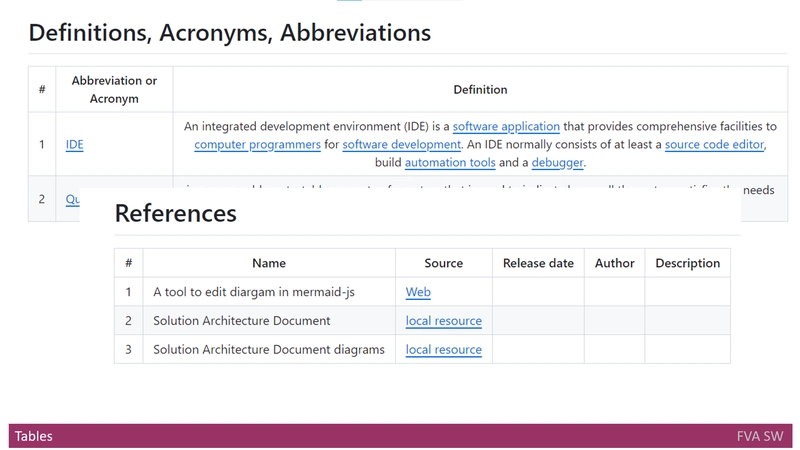Introduction: AWS vs Azure
The cloud computing landscape is dominated by titans, and two names consistently stand at the forefront: Amazon Web Services (AWS) and Microsoft Azure. Choosing the right cloud platform is a critical decision for businesses of all sizes, impacting everything from cost and performance to scalability and innovation. But with both AWS and Azure offering a vast array of services, deciding between them can feel overwhelming.
This comprehensive guide dives deep into the AWS vs Azure comparison, breaking down the key differences and similarities across crucial categories. Whether you're a startup launching your first application, an enterprise migrating legacy systems, or a developer seeking the best tools, this comparison will provide the clarity needed to make an informed decision for your specific needs in 2025.
AWS vs Azure: At a Glance

Deep Dive Comparison: AWS vs Azure
Let's break down the core areas where these cloud giants differ:
1. Services Portfolio (IaaS, PaaS, SaaS)
Both AWS and Azure offer hundreds of services across Infrastructure-as-a-Service (IaaS), Platform-as-a-Service (PaaS), and even Software-as-a-Service (SaaS).
Compute:
AWS: Amazon EC2 (Elastic Compute Cloud) offers a vast range of instance types. Also strong in serverless (AWS Lambda) and containers (ECS, EKS).
Azure: Azure Virtual Machines provide robust VM options. Strong serverless (Azure Functions) and container orchestration (AKS).
Verdict: Both are incredibly strong. AWS often has a slight edge in the sheer variety of instance types, while Azure's integration with Windows Server and other Microsoft products can be seamless.
Storage:
AWS: Amazon S3 (Simple Storage Service) is the industry standard for object storage. Also offers EBS (block storage), EFS (file storage), and Glacier (archival).
Azure: Azure Blob Storage is the primary object storage solution. Offers Azure Disk Storage (block), Azure Files (file), and archive tiers.
Verdict: Both offer comparable, highly durable, and scalable storage solutions. S3's long history gives it wide adoption, but Blob storage is highly competitive.
Databases:
AWS: Offers RDS (Relational Database Service) supporting various engines (PostgreSQL, MySQL, SQL Server, Oracle, MariaDB), DynamoDB (NoSQL), Redshift (data warehousing), and more.
Azure: Azure SQL Database is a powerful managed SQL Server offering. Also provides Cosmos DB (multi-model NoSQL), managed instances for PostgreSQL, MySQL, and data warehousing solutions (Synapse Analytics).
Verdict: AWS has a wider native variety of database types. Azure excels with SQL Server integration and offers compelling NoSQL/analytics options.
Networking:
AWS: Virtual Private Cloud (VPC) allows isolated network segments. Extensive services like Route 53 (DNS), Direct Connect (dedicated connection), and Load Balancing.
Azure: Virtual Network (VNet) provides network isolation. Offers Azure DNS, ExpressRoute (dedicated connection), and Load Balancer options.
Verdict: Both provide comprehensive and mature networking capabilities. The choice often depends on specific configuration needs or existing network infrastructure.
AI & Machine Learning:
AWS: SageMaker provides a comprehensive ML platform. Offers various pre-trained AI services for vision, speech, text, etc.
Azure: Azure Machine Learning is a robust platform. Strong offerings in Cognitive Services (pre-trained AI) and integrates well with Power Platform.
Verdict: Both are heavily investing and leading in AI/ML. AWS SageMaker is very popular, while Azure Cognitive Services are highly regarded for ease of use.
2. Pricing Models and Cost Management
Pricing is notoriously complex for both AWS and Azure.
AWS Pricing: Primarily pay-as-you-go. Offers significant discounts via Reserved Instances (1-3 year commitments) and Savings Plans. Spot Instances offer deep discounts on spare capacity but can be interrupted. AWS Cost Explorer helps manage spending.
Azure Pricing: Also uses pay-as-you-go. Offers Reserved VM Instances and Savings Plans. Azure Hybrid Benefit allows leveraging existing on-premises Windows Server/SQL Server licenses for discounts in the cloud. Spot VMs are available. Azure Cost Management + Billing provides tools for analysis.
Verdict: Neither is definitively "cheaper." Costs depend heavily on usage patterns, chosen services, commitment levels, and optimization efforts. Azure's Hybrid Benefit can be a significant cost saver for existing Microsoft enterprise customers. Always use their respective pricing calculators for estimates.
3. Ease of Use and Management Console
AWS Management Console: Feature-rich and comprehensive, but can be overwhelming for newcomers due to the sheer number of services listed. Extensive documentation and community support are available.
Azure Portal: Generally considered well-organized and intuitive, especially for those familiar with Microsoft products. Integrates management of various Azure services smoothly.
Verdict: Subjective, but Azure's portal is often cited as slightly more user-friendly initially. Both have steep learning curves for mastering advanced features. Both offer robust Command Line Interfaces (CLI) and SDKs.
4. Market Share and Community
AWS: Holds the largest cloud infrastructure market share globally, giving it a mature ecosystem, a vast community for support, and a large pool of experienced professionals.
Azure: The clear number two player, growing rapidly, particularly within the enterprise segment leveraging existing Microsoft relationships. Its community is also large and expanding quickly.
Verdict: AWS has the historical advantage and broader market penetration. Azure's growth trajectory and enterprise foothold make it a formidable competitor.
5. Hybrid and Multi-Cloud Capabilities
Businesses increasingly operate in hybrid (on-premises + cloud) or multi-cloud environments.
- AWS: AWS Outposts brings AWS infrastructure and services to virtually any data center or co-location space. Offers various services for hybrid connectivity and management.
- Azure: Azure Arc is a key differentiator, designed to extend Azure management and services (like data services, Kubernetes) to any infrastructure – on-premises, edge, or even other clouds (like AWS!).
- Verdict: Azure, with Azure Arc, has a very strong and arguably more unified story for hybrid and multi-cloud management from a single control plane. AWS Outposts provides a powerful way to run AWS natively on-premises.
Who Should Choose AWS?
- Organizations seeking the widest breadth and depth of mature cloud services.
- Startups and businesses prioritizing flexibility and a vast ecosystem.
- Companies with teams experienced in AWS or needing access to the largest talent pool.
- Businesses without significant existing investment in the Microsoft stack.
Who Should Choose Azure?
- Enterprises heavily invested in Microsoft software (Windows Server, SQL Server, Office 365, Active Directory).
- Organizations prioritizing a strong hybrid cloud strategy (Azure Arc).
- Companies looking for potentially advantageous pricing via Azure Hybrid Benefit.
- Development teams focused on .NET applications.
Conclusion: Making the Right Choice for You
There's no single "winner" in the AWS vs Azure battle. The "best" cloud platform depends entirely on your organization's specific requirements, existing infrastructure, technical expertise, budget, and strategic goals.
- AWS offers unparalleled service variety and market leadership.
- Azure shines with enterprise integration, hybrid capabilities, and rapid growth.


